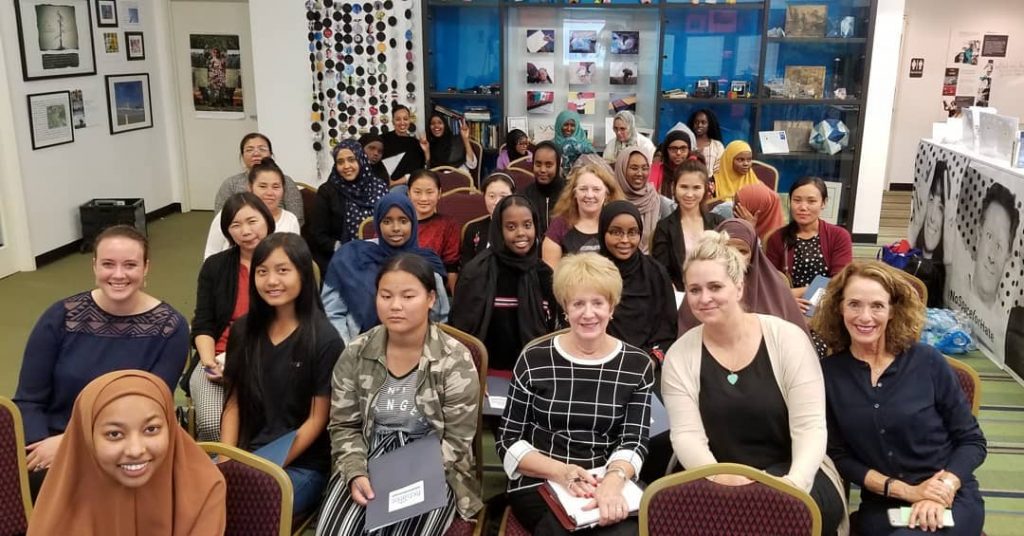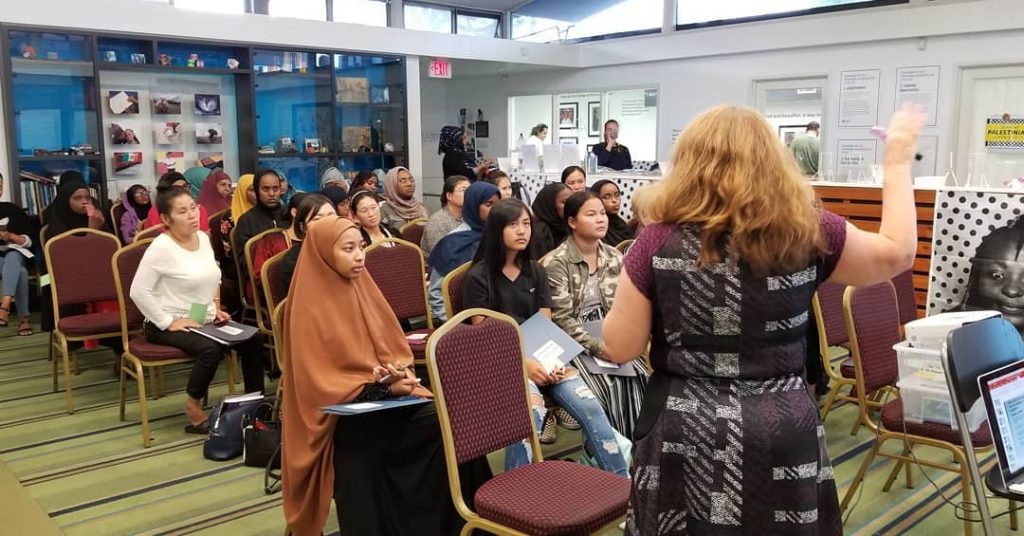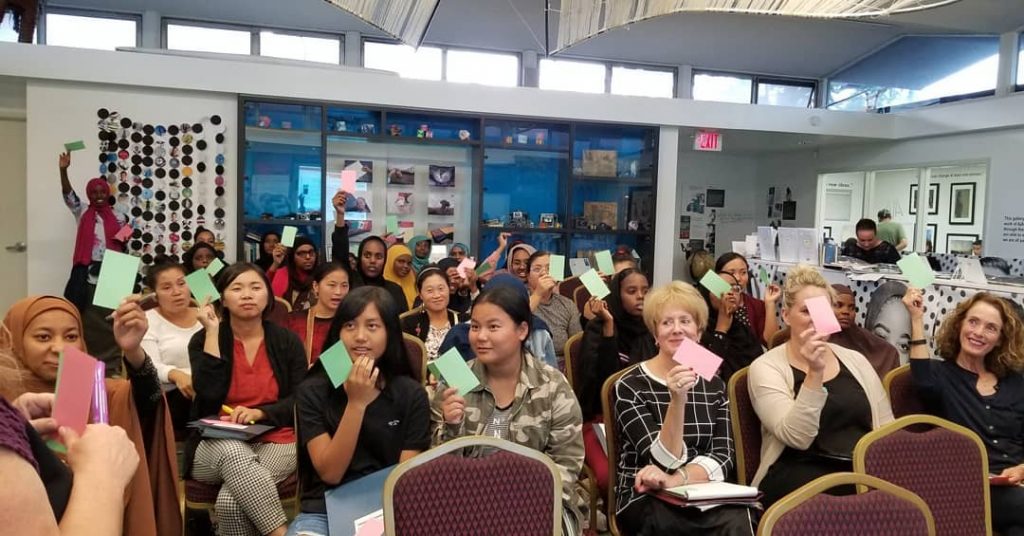


On Wednesday, October 24 the Center for Community Health, Refugee Health Unit started the first stage of its community based participatory research project. Earlier this year, the unit received a grant by Women Give San Diego, a nonprofit organization that funds programs that help women and girls in San Diego reach economic self-sufficiency and advocates for public awareness of women’s economic issues. The project is being conducted in partnership with Valerie Nash from Nash & Associates and focuses on the economic and social challenges that refugee and immigrant women and girls face in terms of education and employment.
As part of the first stage of the research, over 30 attendees participated in a focus group which took place at the Partnership for the Advancement of New Americans (PANA) in City Heights. The event started with a presentation by Nash discussing the importance of education, challenges and barriers surrounding this community as well as the strengths and resources needed to succeed in one’s career. The audience actively engaged in discussions on these topics and were encouraged to ask and answer questions from the presentation, such as: ‘What kind of community, family and personal resources does one need to be successful in their career goals?’
Following the presentation, the group was split into two: students aged 15-21 and parents. The girl’s focus group was led by Valerie Nash and Rahil Hernandez and the women’s focus group was led by Amina Sheik and Reem Zubaidi. The purpose of the parents’ focus group was to gain an understanding of the challenges parents face in supporting their daughters’ educational goals. Through the discussion, parents voiced their concerns about issues including navigating the school system and enrolling their students in good schools, English as a second language, and bullying among other topics.
For the student group, the discussion centered on the students’ personal experiences, including some of the highs and lows of their educational experiences. Answers ranged from things like financial aid worries to facing discrimination as the students’ lows. Some of their highs included creating long lasting friendships, planning for their future careers, and developing new skills. The discussion continued on to potential solutions that students could envision for changing the school system, and a variety of answers were given for this topic.
Participants came from a variety of backgrounds to reflect the diversity of our communities in and around City Heights. We are especially thankful to the Karen Organization for attending and providing translation, as well as to their Executive Director Nao Kabashima for helping to facilitate the discussion. We would also like to thank the United Women of East Africa Support Team for participating and to Agazit Tesfai for helping to distribute and complete surveys with participants.
